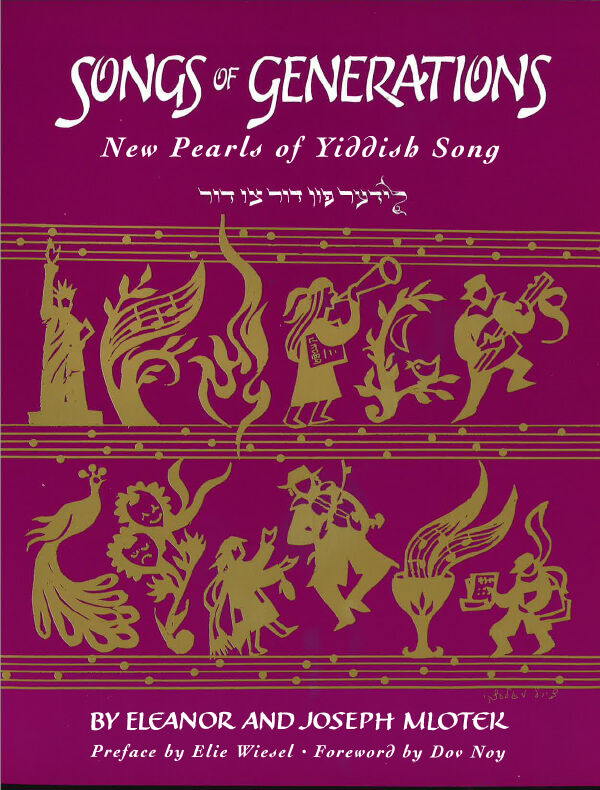Folksong in the repertory of singer Ben Bonus, submitted by his wife, actress Mina Bern. In the song collection Al haahava by Mendel Singer and Moshe Bik, with translations by Shimshon Meltser (1951), which folklorist Ruth Rubin gave the compilers, two verses of the song appear. Ruth Rubin and the compilers were greatly enamored of the melody. A variant of the text was published by Y. L. Cahan in 1927-1928 (no. 24 in his Collected Works).

I sit at my work
and my back aches.
My eyes hurt
from looking for my sweet love.
Come strolling with me
in the green woods,
Oy-vey, my heart,
I am so cold.
I begin embracing
and wrapping around her.
Oy-vey, my heart,
love is hard.
or, “enveloping”
lkh zits mir bay der arbet,
Tut mir vey der rukn,
Mayne oygn tuen mir shoyn vey
Oyf mayn zis-lebn aroystsukukn.
Kum mit mir shpatsirn
In dem grinem vald,
Oy-vey, dushe mayne,
S’iz mir azoy kalt.
lkh heyb ir ayntsutulyen
Un ayntsuhiln,
Oy-vey, dushe mayne,
Shver a libe tsu shpiln.
איך זיצ מיר בל דער אַרבעט,
טוט מיר װײ דער רוקן,
מײַנע אױגן טוען מיר שױן װײ
אױף מען זיס-לעבן אַרױסצוקוקן.
קום מיט מיר שפּאַצירן
אין דעם גרינעס װאַלד,
אױ-װײ דושע מײַנע,
סיאיז מיר אַזױֹי קאַלט.
איך הײב איר אפֿנצוטוליען
און אײַנצוהילן,
אױ-װײ דושע מײַנע,
שװער אַ ליבע צו שפּילן.
Song Title: Ikh Zits Mir Bay Der Arbet

The Songs of Generations: New Pearls of Yiddish Song anthology comprises songs that were either never printed before or appeared in rare and inaccessible publications — sometimes in different versions and without proper sources. Most of the songs in this book were submitted by readers of Chana and Yosl’s column “Perl fun der yidisher poezye” (Pearls of Yiddish Poetry) in the Yiddish newspaper Der Forverts (The Forward), initiated in October, 1970. Over 25 years, thousands of songs were collected in correspondence and on cassettes from readers throughout the world, and they represent a veritable national Yiddish song archive. Chana Mlotek, in her introduction, writes, “In the course of years the inquiries, contributions and enthusiasm of these readers have kept our own interest unflagging and have reinforced our dedication to this effort. And in recent years our participants have also been augmented by new readers from the former Soviet Russia, who receive our newspaper there or from newly-arrived immigrants in this country and Israel.”